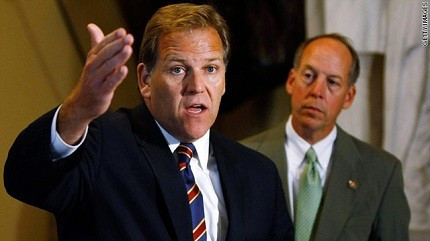US Warns of 'Catastrophic Cyber-Attack' from China, North Korea or Al Qaida

A catastrophic cyber-attack could strike the US in the near future, according to a leading US politician.
Congressman Mike Rogers, Chairman of the House of Representative Committee on Intelligence, said foreign countries and terrorist organisations were a growing threat to American infrastructure and private businesses.
China is mainly to blame for stealing intellectual property from US businesses whereas North Korea and Al Qaida are responsible for cyber-related crimes.
""Exponentially, governments like China and Russia and now Iran, North Korea and others have gotten into the business of cyber espionage and developing capability for cyber-attack," he said as quoted by Lasing State Journal.
"You can see that that becomes incredibly concerning. I believe after talking to all the folks involved in this that we are headed for a catastrophic cyber-attack in this country," Rogers said.
Rogers urged approval of the Cyber Intelligence Sharing and Protection Act, an anti-piracy bill that will enable businesses and the government to more easily share cyber-security information.
Critics claim that the legislation contains few restraints on how and when the government may monitor private information and that it could end up damaging file sharers, rather than halting foreign spies or hackers.
But Rogers claimed the bill would not allow the government to censor information, close down websites or spy on people.
"If we don't do this, I am fearful about the future of our economic prosperity in America," Rogers said.
The bill is supported by 30 private companies, including tech and IT companies such as Facebook, Edison Electric, Microsoft, Intel, IBM, US Telecom, Verizon Wireless and Symantec, as well as communications and phone firms and associations, such as the National Cable & Telecommunications Association, AT&T and Comptel.
Supporters of the bill believe the ability to share information between private and public organisations is crucial to the future of internet security.
However, the Obama administration has expressed reservations on the bill. In a statement in The Hill newspaper, National Security Council spokeswoman Caitlin Hayden said: "While information-sharing legislation is an essential component of comprehensive legislation to address critical infrastructure risks, information-sharing provisions must include robust safeguards to preserve the privacy and civil liberties of our citizens.
"Legislation without new authorities to address our nation's critical infrastructure vulnerabilities or legislation that would sacrifice the privacy of our citizens in the name of security will not meet our nation's urgent needs."
While in favour of granting the government new regulatory powers to defend the US from cybercrime, the White House appears to have stepped forward in protection of privacy over security.
© Copyright IBTimes 2025. All rights reserved.






















